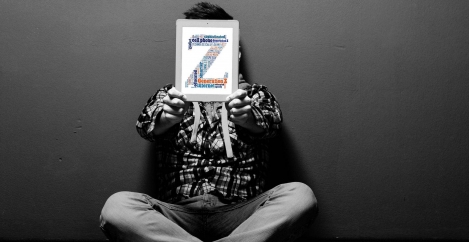September 29, 2015
Generation Z is the smart generation that will redefine work, claims report 0
 The trade association BSRIA has launched a White Paper called Products and Systems for Generation Z in Reduced Carbon Buildings to explore the future needs of buildings designed for what it calls the ‘smart generation’. It considers ways in which the value of buildings might be improved in order to raise productivity and wellbeing for occupiers and at the same time generate new revenue streams for suppliers. Authored by Jeremy Towler and based on data collected in March of this year, it suggests that Generation Z are the “first tribe of true digital natives” and are ‘smarter and more prudent than Generation Y. They are empowered, have more job choices, seek freedom of movement and flexible working policies. They are the ‘see it – want it’, ‘touch it – get it now’ generation.’ The report claims this will define their relationship with work and drive demand for flexible working and on-demand offices.
The trade association BSRIA has launched a White Paper called Products and Systems for Generation Z in Reduced Carbon Buildings to explore the future needs of buildings designed for what it calls the ‘smart generation’. It considers ways in which the value of buildings might be improved in order to raise productivity and wellbeing for occupiers and at the same time generate new revenue streams for suppliers. Authored by Jeremy Towler and based on data collected in March of this year, it suggests that Generation Z are the “first tribe of true digital natives” and are ‘smarter and more prudent than Generation Y. They are empowered, have more job choices, seek freedom of movement and flexible working policies. They are the ‘see it – want it’, ‘touch it – get it now’ generation.’ The report claims this will define their relationship with work and drive demand for flexible working and on-demand offices.
The reports main findings are presented as a Q&A:
What will be the expectations of Generation Z – the ‘smart’ generation?
When asked about expectations of buildings, Generation Z want devices that are aesthetically pleasing and want to know immediately when there is something wrong in the building and, ideally, have the problem fixed immediately. They also want choice and it will be important for them to be able to choose their providers based on advice and transparency over cost of products and services.
Regarding technology, they want simplified, flexible products, which are easily manageable because they themselves lack skills to get involved in the detail. In short, they want passive system management.
What does our industry need to do to deliver these expectations and to achieve the reduced CO2 targets over the next 10 years?
Julia Evans, Chief Executive, BSRIA, said: “Generation Z has also been characterised as the ‘sharing not the owning generation’. Therefore, there will need to be more options for renting and leasing rather than buying, due to higher capital costs. In relation to an uncertain energy future, Generation Z can see the immediate benefit of recycling.
This generation has requested to ‘keep it simple’ and our industry needs to offer intelligent solutions that are more modular as well as being capable of being interconnected into a system to provide a global view. Therefore, products must standardise on how they communicate information between themselves. The intelligence should be built in to the controls and software.”
What products and services will be required to achieve these objectives?
Julia claims: “There was a general consensus that hybrid technologies would become dominant. Generation Z seem much happier to buy a service than own a product. This includes buying a solution to solve an energy-related problem, rather than the tangible product itself. Suppliers will, therefore, have to change their ‘modus-operandi’ to accommodate this stance.
It also was found that there is a need for smarter, more connected products which are simple for both contractors and end-users. Generation Z will want the latest technology, with quick, tangible results but with little or no additional costs. There should be a focus on service – it is big business.”













